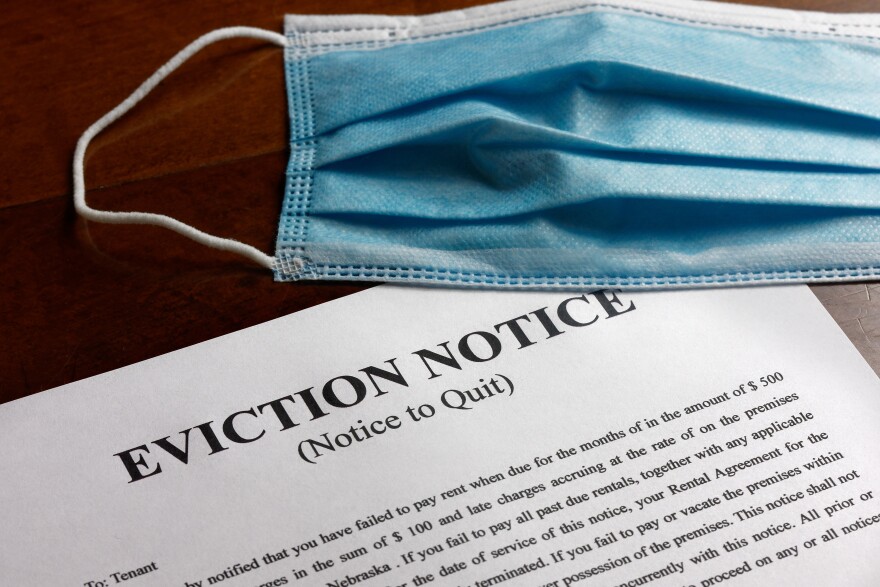The City of Tallahassee is trying to work out how it can help citizens that may soon lose their home due to unemployment caused by COVID-19. Currently, there are more than 570 evictions pending in Leon County. That number is expected to rise once a federal eviction freeze comes to an end.
Tuesday, city commissioners got a grim report on the state of unemployment in Florida’s Capital City. The city’s Housing and Resilience Director Abena Ojetayo delivered the news.
"Our unemployment rate has tripled peaking in April at 13%. We have a survey from the U.S. Census Household Pulse and they found that about 21% of Floridians were behind on their mortgage at the time of that survey," said Ojetayo. "About 36% are behind on their rent."
Ojetayo says with help funding from the federal CARES Act her department been able to help some people keep a roof over their head.
"So far we have $7.5 million that have been sent directly to residents, about 3,200 of them have been funded or approved," said Ojetayo.
But there are still more than 3,000 applications left, and the money has run out. The federal moratorium on evictions expires on New Year’s Eve and some people could be starting the new decade, homeless. Legal Services of North Florida’s Stephanie Johnson says some of those people have called them for help. But she says there’s not much her group can do.
"All we can really do is advise tenants on what the eligibility requirements are for the CDC declaration, make sure that they have sent that declaration to their landlords, said Johnson. "And if an eviction has been filed we can request a delay of the final eviction order. But mostly we’re telling them to prepare to move."
Commissioners have settled on the creation of what they’re calling a Landlord Risk Mitigation Fund. It would be initially funded with $250,000. Their hope: is that it will help landlords continue to rent with the assurance that if someone can’t pay they can go to the city for compensation. But that won’t help everyone who will likely end up homeless, nor does it address those who already are. For them, City employee Delmas Barber suggests building an outdoor shelter.
"The one in St. Petersburg, they have no alcohol, no families, the police department is the one that screens them and refers them to the camp," said Barber. "All kinds of things I think that we can do to make them safe and clean."
Mayor John Dailey liked the idea.
"I would love for part of the motion today to charge staff with working with the Continuum of Care and our community partners to bring back an agenda item ASAP," said Dailey. "If not the direction to move forward to create some type of outdoor venue as it was proposed by Mr. Barber to do it immediately."
But Commissioner Curtis Richardson did not.
"I’m not sure that I’m sold yet on the outdoor shelters. I would want to see what’s happening in St. Petersburg," said Richardson. "Because I know when they were encamping on Pensacola street not only were they sheltering there but there was prostitution going on up in there, there was crime, there was drug sales going on."
And Matlow believes the situation isn’t ideal.
"We don’t want to create an outdoor shelter that were just sending people who just got evicted, right? How do we get ahead of that? The landlord program I think is a great start," said Matlow.
Despite the hedging, the commission agreed to have city staff look into building an outdoor shelter. Still, Commissioner Diane Williams-Cox believes Congress and the federal government should be doing more.
"If anybody in Washington is listening, we need a stimulus bill passed ASAP," said Williams-Cox. "That would help more than anything we can do in this room right now."
The Commission is planning to send a letter to Gov. Ron DeSantis, asking for a state eviction moratorium to be reinstated.



